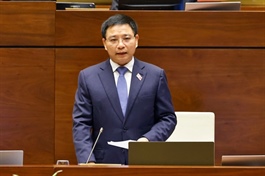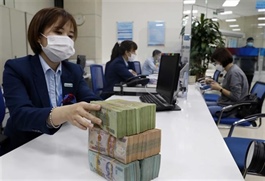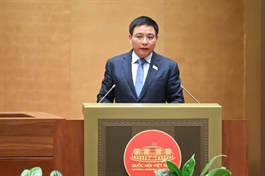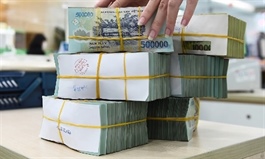Minister of Finance proposes 'seed money' strategy to unlock disbursement
Minister of Finance proposes 'seed money' strategy to unlock disbursement
At the question-and-answer session on June 19, Minister of Finance Nguyen Van Thang outlined strategies to ensure full disbursement of public investment funds, including using state budget capital as 'seed money' to leverage additional funding sources.
|
NA deputy Tran Kim Yen of Ho Chi Minh City raised concern about measures to accelerate public investment disbursement, noting the first quarter results remained low despite the government's 100 per cent annual target.
Meanwhile, NA deputy Nguyen Thi Yen Nhi from Ben Tre province mentioned the importance of official development assistance (ODA) and foreign preferential loans in supplementing public investment, particularly in education and health infrastructure. However, in recent years, ODA projects have been behind schedule, and the disbursement rate in the first five months of 2025 reached just under 6.3 per cent, well below average. Nhi asked the Ministry of Finance (MoF) about the underlying causes and proposed solutions, particularly how to reduce processing time and streamline procedures between donors and the government.
Responding to the questions, Minister Thang admitted that disbursing all public investment capital this year will be a challenge. "Disbursement rates typically remain low at the start of the year due to procedural delays, site clearance issues, and emerging challenges such as raw material shortages, as well as weak organisational and implementation capacity in some localities," he said.
The minister explained that ODA disbursement lags public investment due to both systemic and operational challenges. These projects face dual procedural requirements – complying with both domestic regulations and donor conditions – creating excessive complexity. Additionally, chronic issues in project preparation, including unclear loan plans and insufficient counterpart funds, frequently delay scheduled disbursements.
"The government has identified this issue and is taking action to increase the rate of disbursement in public investment. In the immediate term, the government is focusing on handling legal impediments, such as amending the Law on Public Investment and decentralising authority to empower localities in resolving project-specific challenges," Minister Thang said.
"Disbursement performance will serve as a key metric for evaluating officials' ability to complete tasks. The government has also deployed working groups to collaborate with localities, resolve implementation bottlenecks, and prioritise public investment disbursement, particularly for critical national projects," he added.
In the first five months of the year, public investment disbursement reached nearly VND200 trillion ($8 billion), accounting for just over 24 per cent of the annual target – an improvement over the same period last year (22 per cent). Furthermore, key national projects have met or exceeded their implementation schedules.
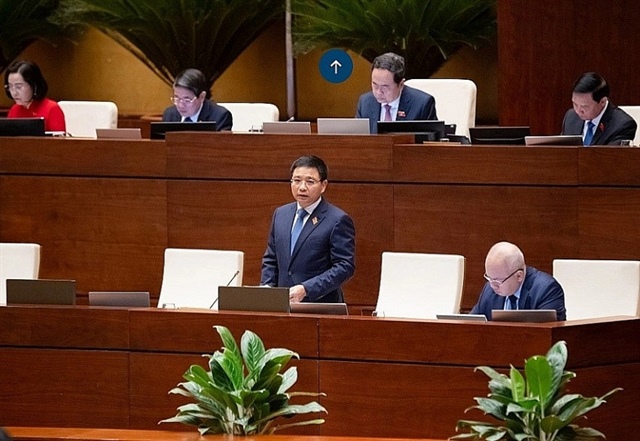
Minister of Finance Nguyen Van Thang |
According to the MoF, the current total social investment is equivalent to about 30-33 per cent of GDP, significantly lower than international benchmarks. If Vietnam wants to achieve 10 per cent GDP growth or more, social investment needs to be 40 per cent of GDP, along with improving investment efficiency by the incremental capital-output ratio index.
"The solution is to allocate the budget for development investment as much as possible, up to 60 per cent," Minister Thang said.
"Capital mobilisation channels should be developed, such as from the stock market, bonds, investment funds, and financial funds. Therefore, we have to upgrade the stock market this year," he emphasised.
Additionally, the troubles of backlogged projects nationwide should be addressed to put them into operation. The Minister said that the number of these projects is considerable, with a total investment of over VND5 quadrillion ($200 billion). In addition, it is necessary to have capital from credit institutions, especially from commercial banks.
To enhance investment efficiency, Thang raised that public investment management should be better to reduce losses and waste in capital management. "The economy should be restructured, and resources should be optimised, focusing on high value-added sectors such as the processing and manufacturing industry, green economic technology industry, digital economy, and circular economy to increase labour productivity."
- 16:20 20/06/2025







